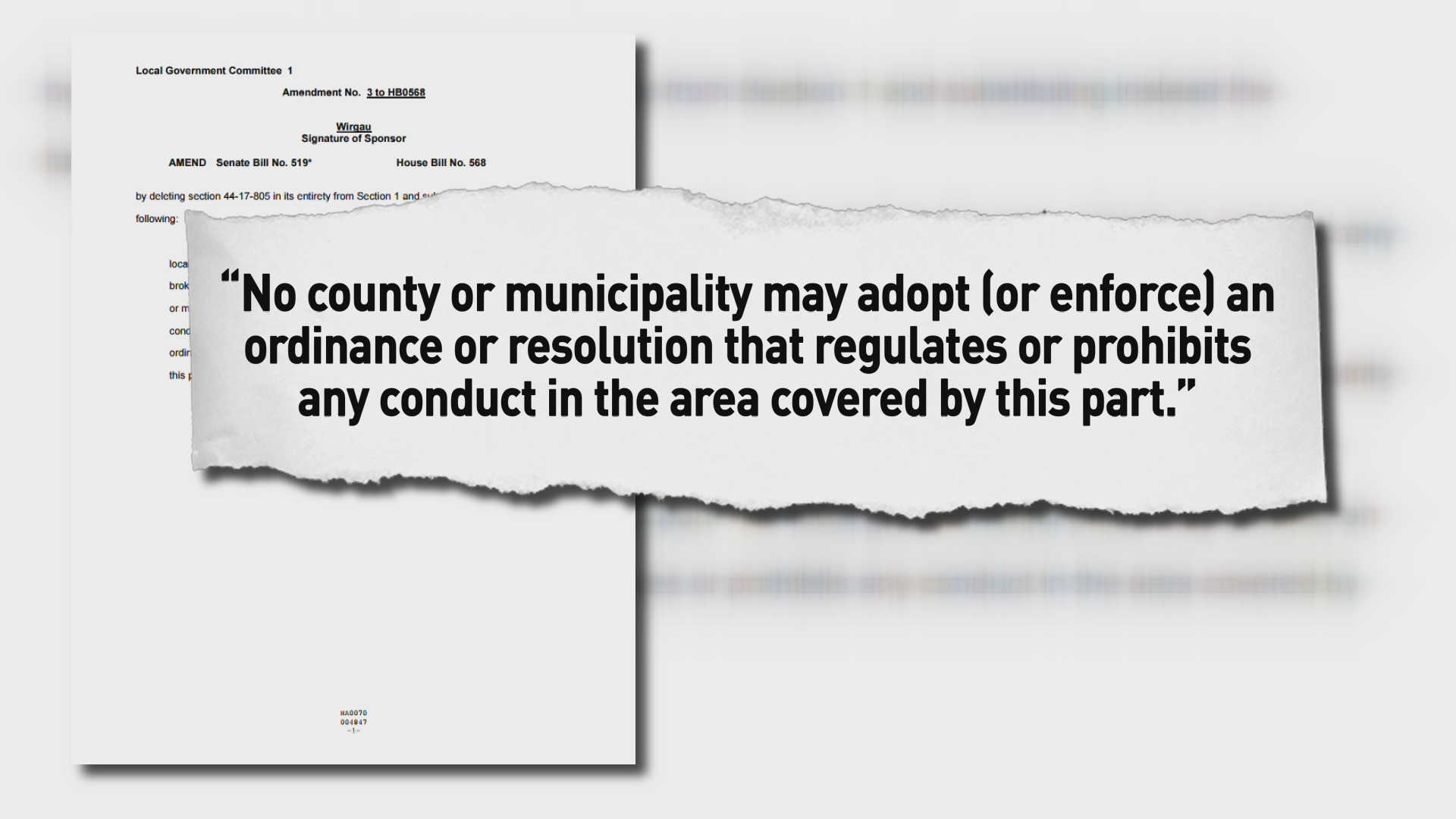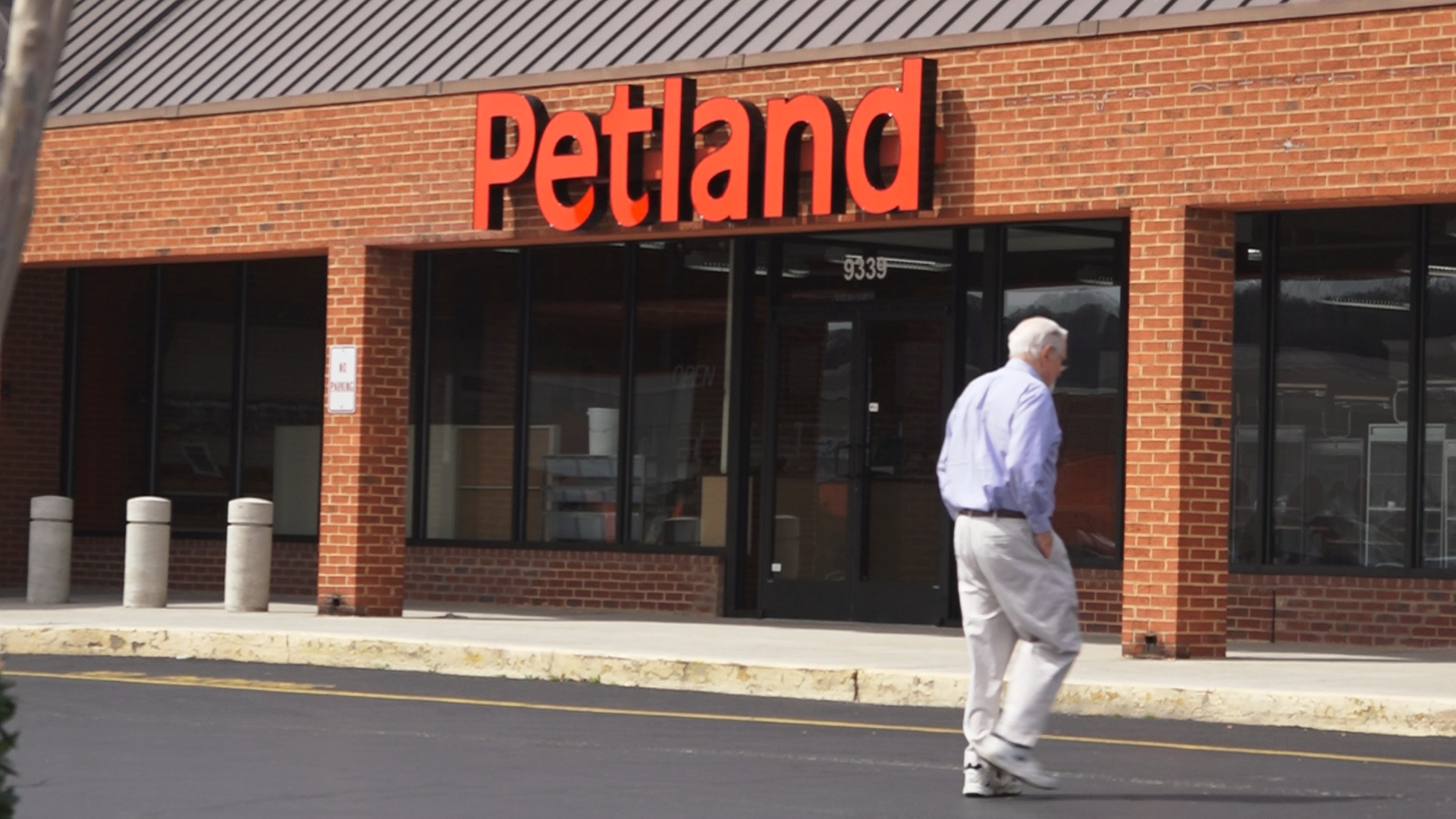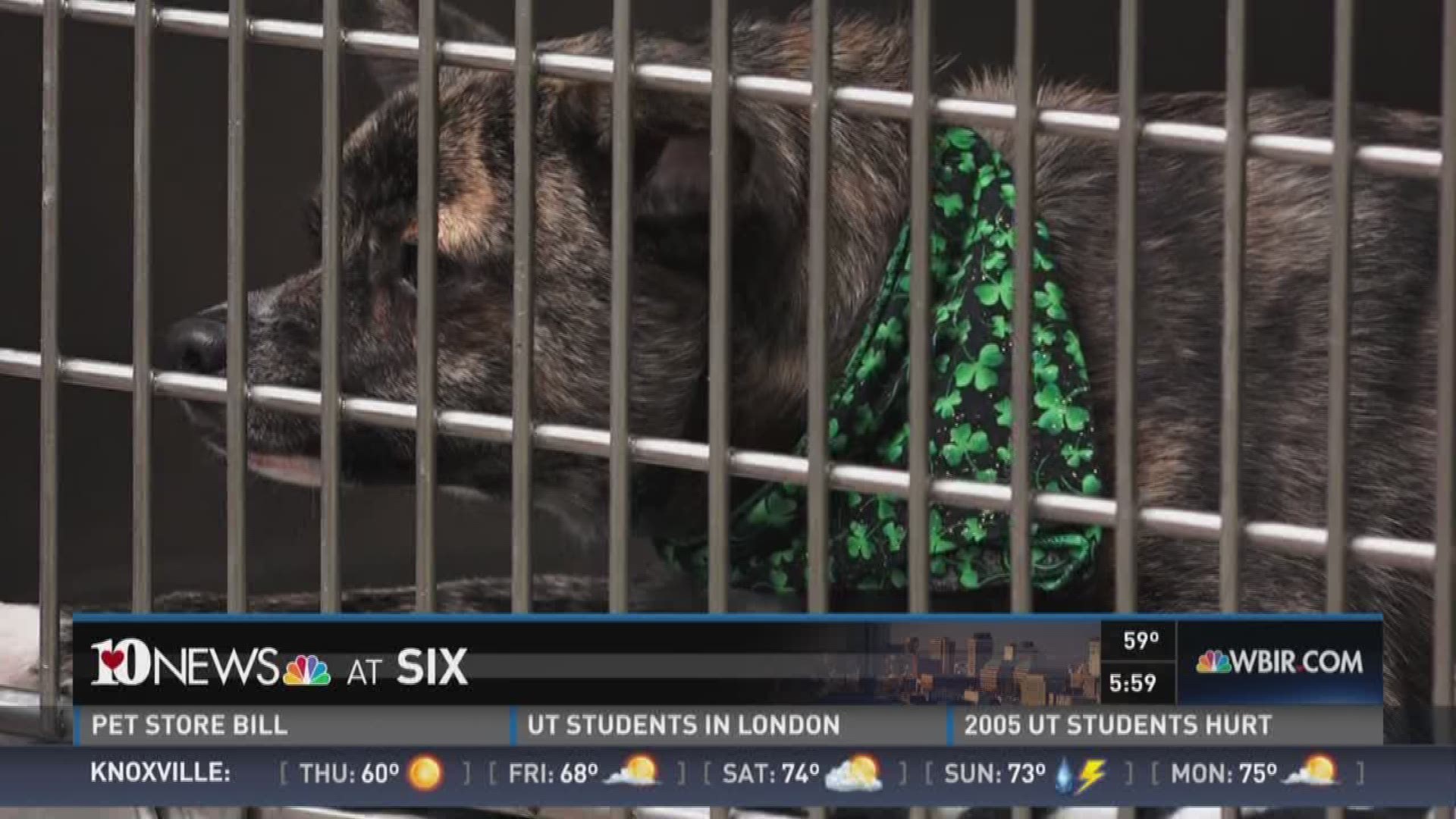Who needs more protection – pet stores, or the animals they sell? It’s the central question fueling the controversy over a Tennessee House Bill 568.
Known formally as the “Tennessee Retail Pet Store Consumer Protection Act,” the bill is being colloquially called the Petland Bill around the capitol, because of the corporation it would benefit. The intent is ‘to provide coverage for certain veterinary expenses to persons who buy defective dogs from retail pet stores,’ according to the bill summary.
In essence, it would provide financial recourse or refunds for new pet owners who discover their dog is sick. Pet stores could be required to cover some vet bills. But critics say there is another motive.

The legislation was proposed by Shelbyville Republican Rep. Pat Marsh to help Greg Bearden, who is in the process of opening a Petland in West Knoxville.
“He just needed some insurance that he wasn’t going to be shut down for doing nothing wrong,” said Marsh.
The concern: about 200 localities have passed ordinances limiting how pet stores can source from commercial breeders. On that number, the Humane Society of the United States agrees – but the harmony ends there.
“It’s an attack on local governments, and an attack on animal welfare,” said Amy Jesse, who works against puppy mill legislation for the Humane Society.
Jesse said many commercial breeders keep dogs in unsanitary and unsafe conditions, and she believes this legislation could propagate the practice, pointing to one specific section at the end. It reads: “No county or municipality may adopt […or enforce…] an ordinance or resolution that regulates or prohibits any conduct in the area covered by this part.”

All parties agree: this legislation would stop local governments from shuttering a pet store if officials did not support its practices. But while Petland says that power has been abused, Jesse says it’s sometimes necessary.
“[City councils] just want to regulate how they’re selling puppies, where they’re coming from, things like that,” Jesse said. “So Petland is afraid because they prevent them from operating unchecked, which is what they want.”

The Humane Society of the U.S. takes issue with Petland's practice of selling puppies from commercial sources, which some major chains avoid. The group points to other media reports of litigation and controversies on the internet as evidence of issues.
When reached for comment, Greg Bearden, of Las Vegas, declined an on-camera interview. He said he hopes to develop more Petland locations in major metros across Tennessee, but won’t move forward with the plan unless the bill passes.
When 10News reached out to Petland corporate, Mike Gonidakis, president of Citizens for Responsible Ownership, responded and said he can speak for Petland.
“If they did it the wrong way, they’d be out of business,” he said of their practices. “They just couldn’t afford it."
Gonidakis said he’s spent the last month in Nashville lobbying for the Petland bill, calling it ‘critical.’ He pointed to similar legislation passed in Arizona and Ohio as past successes for the company.

He said Petland works to be transparent in their practices, and only sources animals from USDA licensed breeders.
“We want our customers to have the peace of mind that we’re not coming from a puppy mill,” he said.
Still, some are concerned by the far-reaching language of the proposal.
The Humane Society of the Tennessee Valley is separate from the national organization, but also opposes the language of the bill.
"That would mean they're protecting themselves from any possible legislation that would protect the animals,” said Amy Buttry, HSTV executive director. “That's what we're most concerned about, the care of the animals."
She also expressed concerns with the unknown impacts.
“We don’t know if that will have an effect on animal shelters, humane societies, rescue groups,” said Buttry.
The city of Knoxville was unable to immediately point out which existing ordinances might be affected, but said it will study the issue.
Knox County, however, saw several potential conflicts.

“The House Bill HB0568 and companion Senate Bill 0519 currently in the Tennessee State Legislature may adversely impact current local government’s ability to enforce a law, regulation or ordinances addressing the sell and wellbeing of dogs in retail commerce in the State of Tennessee,” said Bud Armstrong, Knox County Law Director.
“Any and all state laws related to the health and cares of dogs could be affected,” he added, pointing to existing ordinances on Rabies vaccinations, animal care and keeping and bite investigations/quarantines.
Gonidakis disagrees with that point, claiming the legislation would affect existing local welfare laws.
Still – the Humane Society of the U.S. feels the legislation, while touted as a consumer protection, is really a Trojan horse to de-regulate so-called puppy mills.
“The problem is the state isn’t enacting any meaningful legislation, so it’s saying localities can’t do this, but then it’s not doing it itself,” said Jesse.
The bill is slated for discussion in the coming weeks before the full House. No date has been set for the Senate.

